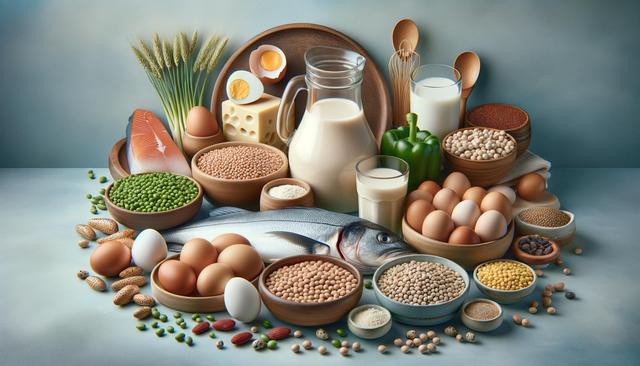
A Guide to High-Protein Foods for a Balanced Diet
Understanding the Importance of Protein
Protein plays a crucial role in the body’s structure and function. It is made up of amino acids, which are the building blocks of muscles, skin, enzymes, and hormones. Consuming adequate protein through high-protein foods is necessary for muscle repair, immune support, and maintaining a healthy metabolic rate. Whether you are an athlete looking to enhance recovery or someone managing weight, including enough protein in your meals can contribute significantly to your health goals. Additionally, high-protein foods offer satiety, which helps control appetite and may reduce unhealthy snacking.
Protein needs vary depending on age, activity level, and overall health. As a general rule, adults should aim for 0.8 grams of protein per kilogram of body weight. However, individuals who are physically active or recovering from illness may require more. Understanding your protein requirements can help you make better dietary choices, especially when selecting from a range of high-protein options.
Animal-Based Protein Sources
Animal-based foods are often considered complete proteins, meaning they contain all nine essential amino acids. These options are especially valuable for individuals aiming to build or maintain muscle mass. Common animal-based high-protein foods include:
- Lean poultry such as chicken or turkey
- Eggs, particularly egg whites for a lower-fat option
- Fish, including salmon, tuna, and cod
- Low-fat dairy products like Greek yogurt and cottage cheese
These sources are not only rich in protein but also provide additional nutrients such as vitamin B12, iron, and omega-3 fatty acids. Choosing lean cuts and preparing them with minimal added fats can help you get the most nutritional benefit while keeping saturated fat intake in check.
Plant-Based Protein Options
For those following a vegetarian or vegan lifestyle, there are numerous high-protein plant-based foods that support health and wellness. While most plant proteins are incomplete, combining different sources can ensure you receive a full range of amino acids. Some top plant-based protein foods include:
- Legumes such as lentils, chickpeas, and black beans
- Tofu and tempeh made from soybeans
- Quinoa, a grain that is a complete protein
- Nuts and seeds like almonds, chia seeds, and sunflower seeds
Incorporating a variety of these foods throughout the day can help meet protein needs. Additionally, many plant-based options offer fiber, healthy fats, and antioxidants, making them valuable components of a balanced diet.
High-Protein Snacks and Convenience Foods
Busy lifestyles often require quick and portable high-protein solutions. Fortunately, there are many convenient snack options that provide a protein boost without compromising nutrition. Examples include:
- Hard-boiled eggs
- Single-serve yogurt cups
- Nut butter packets paired with whole grain crackers
- Protein bars made with natural ingredients
- Roasted chickpeas or edamame
These snacks are great for keeping energy levels stable between meals and supporting muscle recovery after exercise. When selecting packaged high-protein foods, it’s important to read labels and look for options that are low in added sugars and artificial ingredients to maintain overall dietary quality.
Incorporating Protein into Every Meal
Balancing protein intake throughout the day helps maintain energy and supports muscle maintenance more effectively than consuming most of it in a single meal. Aim to include a source of protein in breakfast, lunch, and dinner. Here are a few ideas:
- Breakfast: Scrambled eggs with vegetables or a smoothie with protein powder and nut butter
- Lunch: Grilled chicken salad or a quinoa and black bean bowl
- Dinner: Baked fish with steamed vegetables and lentils
For those who cook at home, planning meals around a protein source can help ensure adequate intake. Using meal prep strategies, such as cooking protein in bulk and storing it for the week, can also make it easier to stick to a high-protein eating plan.
Conclusion: Making Protein a Priority in Your Diet
Whether your goal is to build muscle, manage weight, or simply maintain overall health, high-protein foods are an essential part of a well-rounded diet. By including a variety of both animal and plant-based protein sources, you can meet your nutritional needs while enjoying diverse and satisfying meals. Remember to balance your diet with whole grains, fruits, and vegetables to create a complete and nourishing eating pattern that supports long-term wellness.


